Search
Search Results

Image
Idol of Extremadura
The representation of eyes is a common trait shared by different groups of idols and has given rise to a generic term for these objects: "eye idols." Other shared feeatures are the representation of hair and what are thought to be facial...
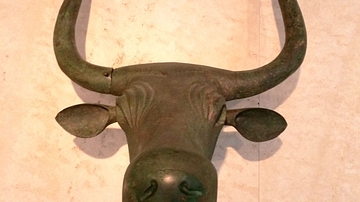
Image
Ancient Bull from Costitx
This bronze bull was cast using the lost wax method. It is hollow inside with cold-etched details. The ears and horns were cast separately and riveted to the head. In some cases, the eyes were filled with vitreous paste. The bulls are interpreted...
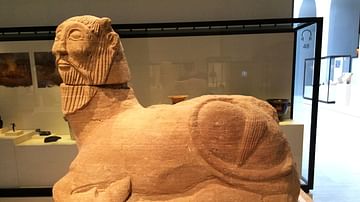
Image
Biche of Balazote
The "Biche of Balazote" is a hybrid sculpture of an androcephalous bull that has clearly been influenced by Greek models. The beast has the body of a bull and a human head with other animal features. The back was originally plain and abutted...
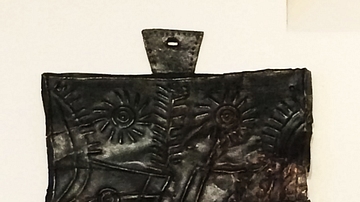
Image
Celtiberian Pectoral Ornament
This Celtiberian pectoral ornament, which portrays a wild landscape replete with horses and stars, would have closed to form a carrying case. This specimen is made of bronze and dates to the 3rd-2nd century BCE. It was found in Arcobriga...
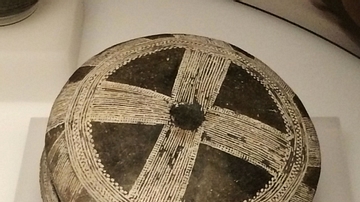
Image
Early Bronze Age Bell Beakers from Iberia
These clay bell beakers come from the Early Bronze Age necropolis of Ciempozuelos (Cuesta de la Reina, Madrid), Spain and they were found during excavations conducted in the late 19th century CE. (Ciempozuelos was the first Bell-Beaker necropolis...
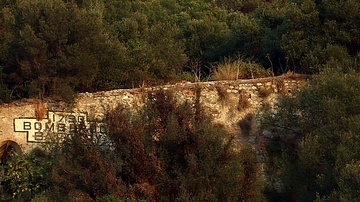
Image
Tower of Homage, the Moorish Castle, Gibraltar
The Moorish Castle's Tower of Homage, built in the 8th Century CE. The "Moorish Castle" was built by the Berber Marinid Dynasty, and is a symbol of Muslim rule in Medieval Spain. The Tower of Homage is the tallest to be constructed during...
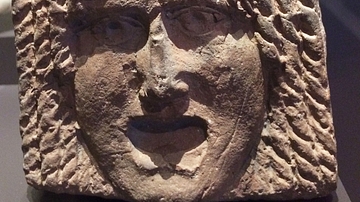
Image
Hispano-Roman Tragedy Mask
This Hispano-Roman tragedy mask was originally an architectural element made of clay. It dates from the 1st-2nd century CE, and it was found at Bañuelas (Ávila), Spain. (Museo Arqueológico Nacional, Madrid)
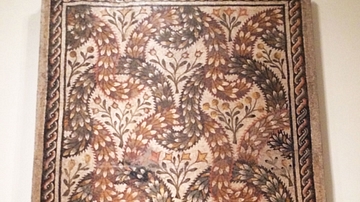
Image
Hispano-Roman Plant Mosaic
This Hispano-Roman mosaic adorned the antechamber to a reception room at the Villa de Soto de Ramalete, which was a country villa in Tudela (Navarre), Spain. It is made of limestone and dates from the 4th century CE. The plant motifs, intertwined...

Image
Stela of Hernán Pérez VI from Bronze Age Iberia
This granite stela dates from the Early or Middle Bronze Age. It was discovered in Cáceres, Spain. (Museo Arqueológico Nacional, Madrid)
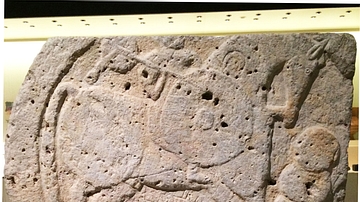
Image
Celtiberian Stela from Clunia
This incomplete funerary stela with an inscription in the Celtiberian language and Western Celtiberian script comes from Coruña de Conde (Peñalba de Castro), Burgos in Spain. The inscription transcribes as "Kaabaarinos," in nominative masculine...